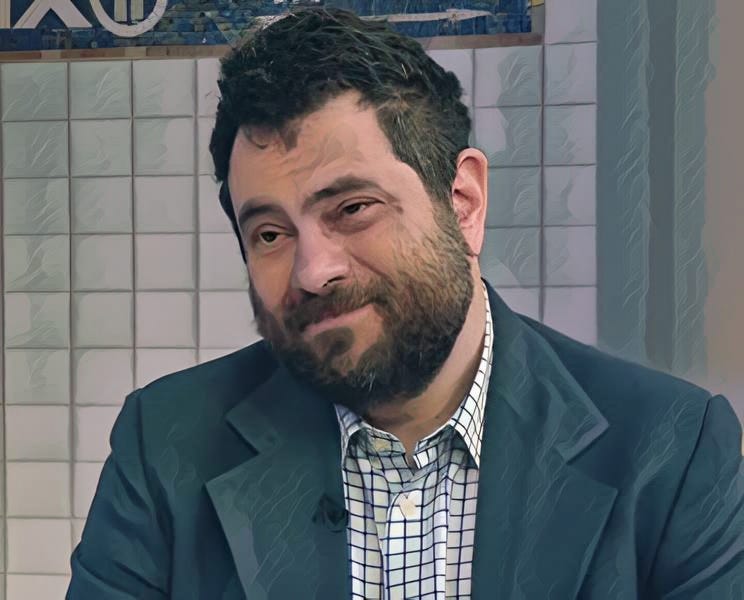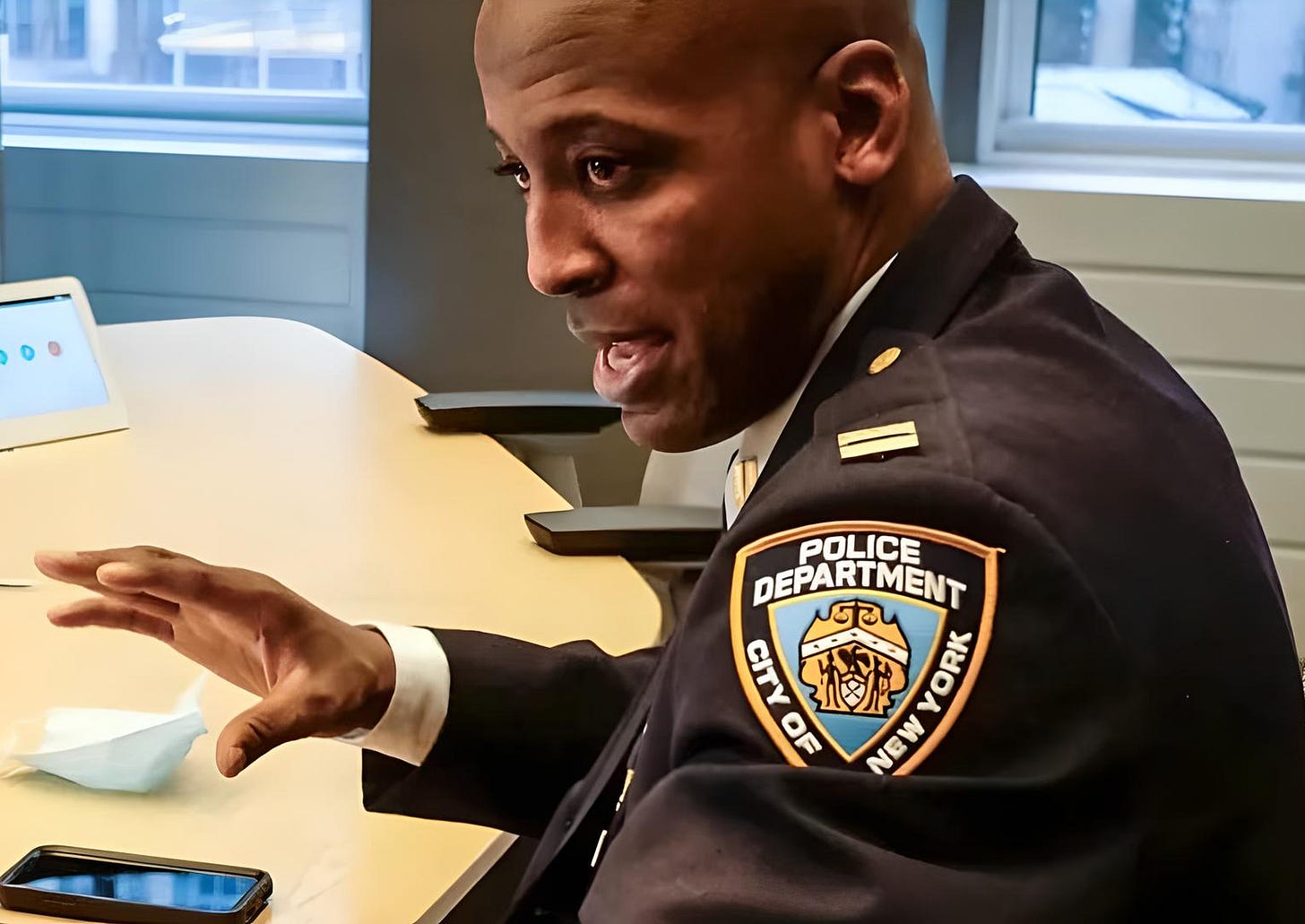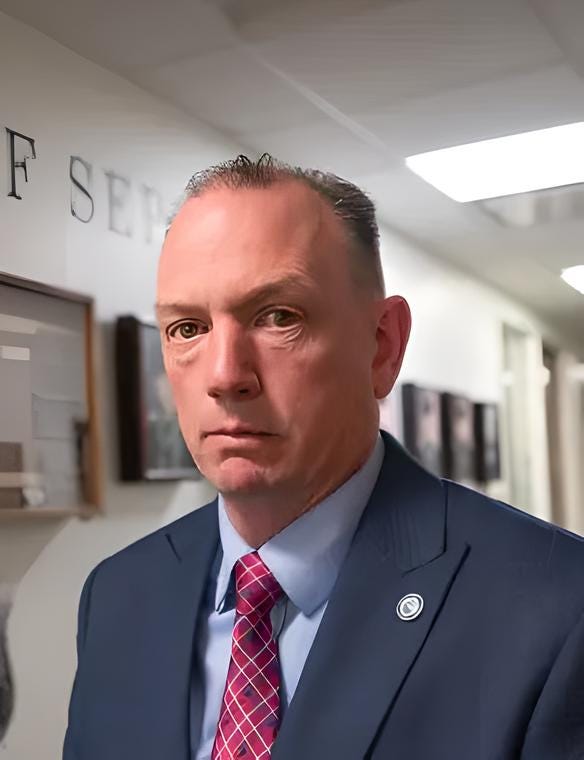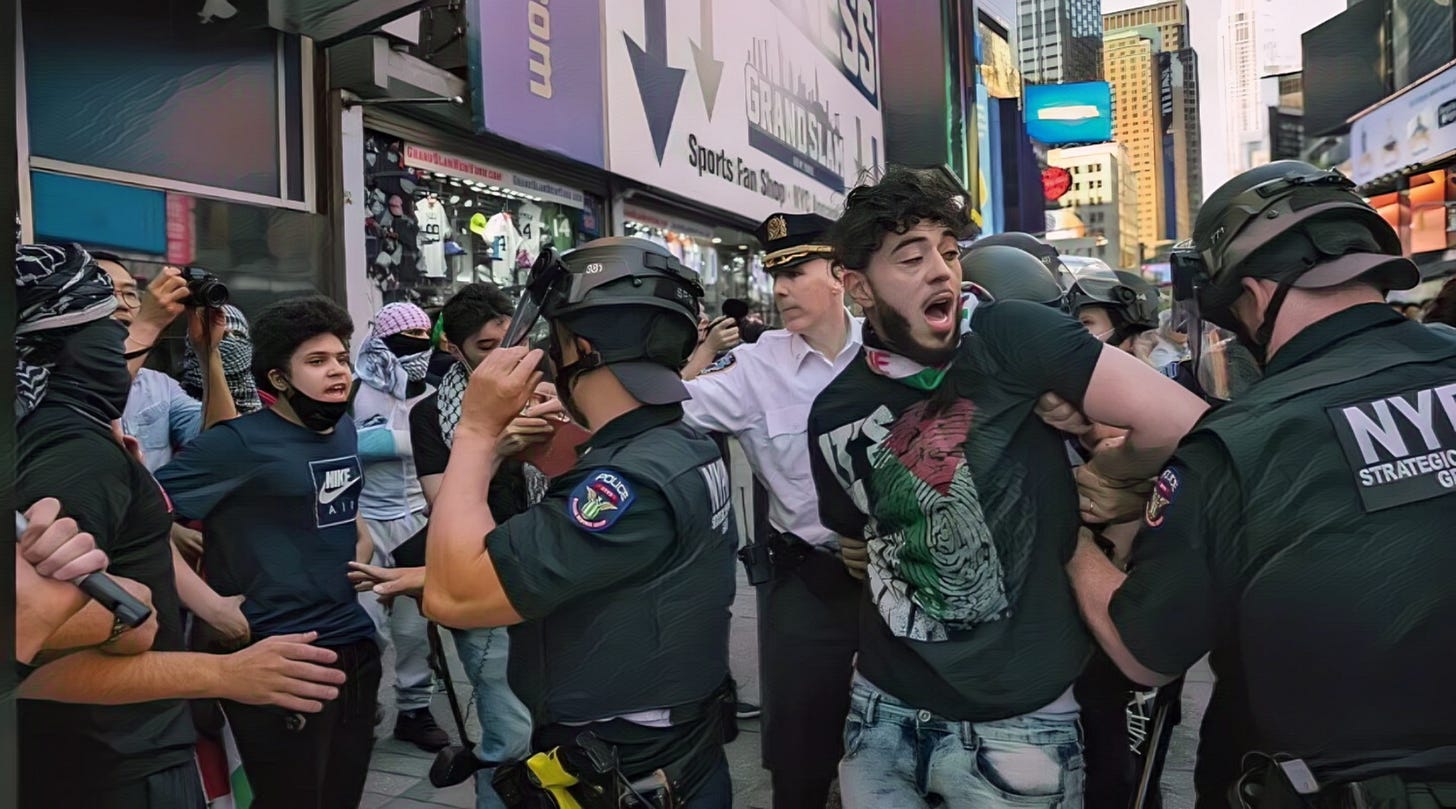NYPD’s Clash With the Press: Where is Our Modern Day Daniel Patrick Moynihan?
Cops Battle Unchecked Media Bias Amid A Failure in NYC Liberal Political Leadership
By Frankie Pressman and Modern Thomas Nast
Today’s turbulent era for New York City, where crime rates surge and public safety is under constant threat, echoes an earlier time in the 1970s and 80s. In both eras, the New York Police Department (NYPD) was and is the City’s first line of defense. However, the modern Department’s battles are not just against the conventional adversaries of law and order. They are increasingly pitted against an adversarial media environment where the line between opinion and factual reporting blurs dangerously, portending disastrous consequences.

Throughout his tenure from 1977 to 1992, the late U.S. Senator Daniel Patrick Moynihan preached the virtues of a liberal center caught between the New Right, which used anti-government rhetoric to protect privileged interests, and a New Left, which disguised self-interest as liberalism. "The central liberal truth is that politics can change a culture and save it from itself."
Moynihan argued that these forces, including influential individuals and corporations and an overreaching state, continuously endangered the true spirit of liberalism by compromising individual freedom.
For Moynihan, recognizing the facts is central to productive political discourse. “Everyone is entitled to his own opinion, but not his own facts,” he famously said. When anyone, including the press, would stray too far from the matters at hand, Moynihan was there to throw the flag. This included members of his party and proponents of his own ideology.
The NYPD brass are at the center of the current storm, being openly criticized on a panoply of issues by figures in the media, particularly New York Daily News columnist Harry Siegel. His critiques, which frequently target the NYPD's strategies and operations, exemplify a broader trend of media hostility that seems more focused on sensationalism than the nuances of policing a megacity.
In today’s cultural battles, New York City has no “liberal center.” The scene lacks political leadership that can effectively mediate and reign in out-of-control claims, whether in the Council Chamber or on the Editorial Page.
For policing, this task now falls to NYPD's leadership, including Chief of Department Jeffrey Maddrey, Chief of Patrol John Chell, Chief of Transit Michael Kemper, Deputy Commissioner of Operations Kaz Daughtry, and Deputy Commissioner of Public Information Tarik Sheppard. They must advocate for the Department’s position and simultaneously “throw the yellow flag” when detractors stray too far afield from the facts.
Siegel's columns, laden with what the NYPD describes as "half-truths and suppositions," are not just seen as misinformed but as actively detrimental at a time when the Department mourns the loss of one of its own, Officer Jonathan Diller. Diller's death, a poignant reminder of the risks these officers face daily, was overshadowed by media coverage that the NYPD feels compounds their challenges rather than enlightens the public.
Siegel was dismissive of the NYPD’s factual allegations.
"Incredible cop talk, to say an editor’s note correcting a simple, single error of fact—which is on me—means ‘admitting the article was flawed,'" Siegel said.
The backlash from NYPD officials has been stark. Chief Kemper responded to Siegel's articles and his unwillingness to discuss facts by calling for higher journalistic standards.
"Your readers deserve more accurate reporting. This article is filled with misleading and straight-up false information," Chief Kemper said.
Chief Chell and Deputy Commissioner Sheppard echo this sentiment, taking to social media to defend their strategies and correct the public narrative.
"From my point of view, if you are going to go after our cops and say nonfactual things, if you are going to dismiss a cop’s death on a radio show, we are going to respond back," said Chief Chell.
Their online engagements are a testament to a department driven to the edge by what they perceive as a relentless and often unfair critique from an ideologically driven press that has broken Moynihan’s cardinal rule: they take liberties with the facts.
"We want to go on social media and push back on the misinformation that’s out there. Because if we don’t, it could cause damage to the reputation of our cops and the work that we’re doing," said Deputy Commissioner Sheppard.
Mayor Eric Adams has supported his police leaders, arguing that the media's failure to report the realities of police work accurately exacerbates the City's public safety challenges.
"I want the leaders of the administration to stand up for police officers who are placing their lives on the line. And I think that’s what they’re doing. Let’s not separate the fact that those who are leading these agencies are human beings. And there are many articles that have been critical of them," Mayor Adams said.
Under his administration, there has been a pronounced call for media accountability. Echoing Monihan’s call, Mayor Adams has stressed that the health of the City's democratic institutions, including its police force, depends on a well-informed public, not one incited by skewed reporting.
However, unlike Moynihan, the Mayor cannot be perceived to be “above the fray.” Adams was an officer in the New York City Transit Police and then the NYPD for over 20 years, retiring as a Captain. His allegiance to the men and women in blue is apparent.
Today, there is a clear void in leadership, a political vacuum in the “liberal center” where Daniel Patrick Moynihan once stood for an entire generation of New York politics. Complex political and cultural debates require an involved and passionate yet removed arbiter of fact. Such a persona is absent in the current climate, and too much is at stake.
The media's contentious relationship with the NYPD has tangible consequences. Last year, more than 2,500 officers left the Department—a mix of retirements and resignations. Over 1,000 officers resigned before reaching pension eligibility. The exodus was spurred by the job challenges and the demoralization that comes from constant public scrutiny and criticism.
The Police Benevolent Association has voiced concerns that the workload, exacerbated by ongoing protests and extended hours, is unsustainable.
"The workload is a leading factor driving people away from the job. If the NYPD is going to survive these staffing reductions, it cannot just keep squeezing cops for more hours," said PBA President Patrick Hendry.
Officers on the ground express a similar sentiment, with many citing fatigue and a lack of support as reasons for malaise.
"I think maybe 95 percent of us are planning on leaving," an unidentified NYPD veteran said.
This officer exodus occurs when the City can least afford to lose experienced law enforcement personnel. The implications for public safety are dire, with fewer officers available to respond to the City’s needs. The NYPD's leadership argues that without support from City leaders and a more balanced portrayal in the media, the Department's ability to serve and protect effectively is significantly hampered.
The NYPD's upper echelon remains committed to its mission in this challenging environment. They advocate for their officers and call for a media landscape that prioritizes truth and complexity over sensationalism. With a Department in a constant media fight and officers under daily assault, a little gratitude would stem the flight of policing talent when the City needs it most.
However, the larger question is, where is the political leadership with the backbone and moral authority needed to confront a brazen press? Who possesses the gravitas to challenge the likes of Harry Siegel and remove them from their self-erected pedestals when they stray too far from the matters at hand? Will a leader of the “liberal center” emerge to mediate the public debate between the City’s establishment and progressive factions?
As the City reaches a critical juncture in addressing crime and ensuring public safety, the necessity for a fair and responsible press is paramount. Like all other institutions, the press can only be kept honest by remaining tethered to the facts and held accountable by solemn political authority. New York needs a modern-day Daniel Patrick Moynihan. But the political landscape is barren, searching for a cultural arbiter all sides can respect.
Yesterday, someone said thank you. For better or worse, a single, promising voice cried out on the Harlem Streets, supporting the facts and the NYPD. Looking officers in the eye, he said, “I love you guys.”













